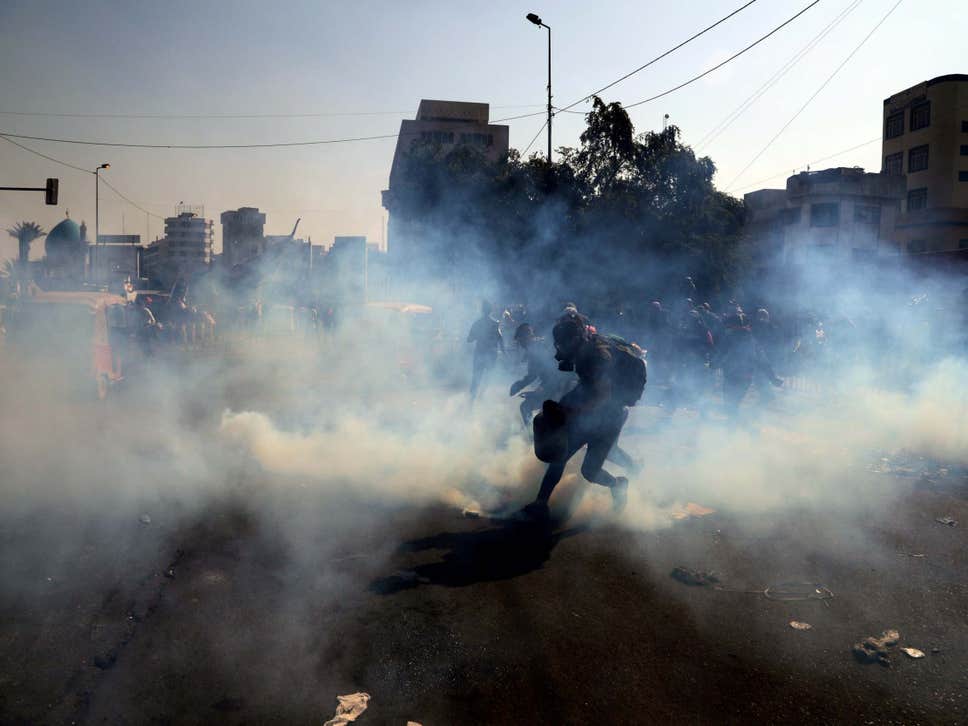Armed factions are shooting hunting rifles loaded with birdshot at peaceful protesters in Baghdad, the United Nations has warned, and urged Iraqi authorities to hold those responsible for the violence to account.
Nearly 500 people have died since October after security forces and affiliated armed groups used deadly force at rallies that erupted across the country against endemic corruption and foreign interference – mainly by Iran and the US.
Last year Amnesty International said that police were firing live ammunition and military-grade teargas canisters – which can pierce skulls – into crowds, killing people.
The group verified several gruesome videos of teargas attacks filmed in Baghdad’s main protest point Tahrir Square.
At least 150 people were injured in the Shia Muslim holy city of Karbala in January alone due to similar tactics, UNAMI added in a statement.
“The continued pattern of the use of excessive force, with ambiguously identified armed groups and unclear loyalties, is a grave security concern that must be tackled urgently and decisively. Peaceful protesters should be protected at all times,” said Jeanine Hennis-Plasschaert, special representative of the UN secretary-general for Iraq.
There was no immediate comment from Iraqi authorities.
However, Iraq’s army spokesperson Abdul Karim Khalaf, separately told local media that “protesting is a right guaranteed by the constitution and the law”.
He said there were no plans to forcibly end ongoing anti-government protests even after the new prime minister Mohammed Tawfiq Allawi forms a new cabinet.
Mr Allawi, the country’s former minister of communication, was nominated as the new premier on 1 February, three months after his predecessor Adil Abdul-Mahdi resigned in November amid the unrest.
Mr Allawi has been publicly endorsed by former prime minister Nouri al-Maliki and influential Shia cleric Muqtada al-Sadr but many protesters just see him as another example of the political elite they have been protesting against.
The prime minister initially called on protesters to continue their demonstrations but later called on them to resolve their differences to avoid dragging Iraq “into the abyss”.
He is expected to announce his cabinet line-up this week.
Iraq has been rocked by four months of protests.
At least nine people were wounded on Monday in Baghdad during renewed clashes between protesters and security forces, police sources said.
Two were wounded because of birdshot and the rest suffered teargas-related injuries.
Protesters have chiefly rallied against the corrupt ruling elite and also foreign interference in the country, that has in recent months become the battleground of a conflict between the US and Iran.
On 3 January a US drone strike in Baghdad killed Iran’s most powerful general, Qassem Soleimani, the force behind many Iran-affiliated paramilitary groups in Iraq and Syria.
A retaliatory Iranian missile attack struck Iraq’s Ain al-Asad airbase days later injuring dozens of US service members who were stationed there.
On Sunday small rockets struck the Iraqi base hosting American troops and other coalition forces in Baghdad’s Green Zone but caused no casualties
Source


 RSS Feed
RSS Feed